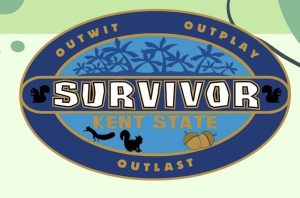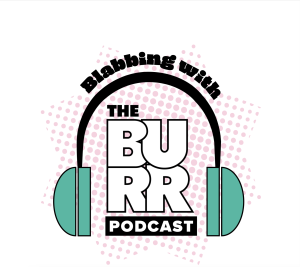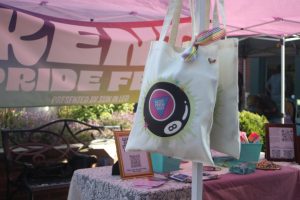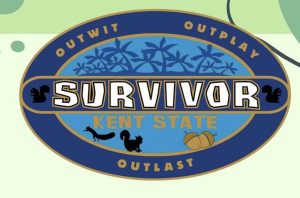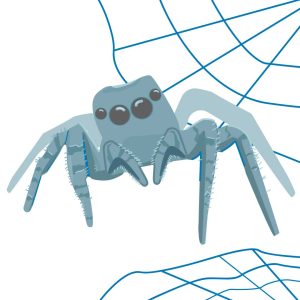Embracing the everyday during challenging times
Words by Molly Heideman, Illustration by Paige Gaskins
On Jan. 19, 2020, the first case of COVID-19 was reported in the United States. Life as we knew it was put on pause. By Feb. 22, 2021, 500,000 Americans died from the virus.
Our mothers, fathers, grandparents, siblings, friends — time after time, we wonder how we let the pandemic get this bad, how we let it rob our loved ones of more time. Finding joy in life began to feel like a fruitless voyage in a choppy sea.
But as humans, it is in our nature to try to find the light at the end of the tunnel.
And that is exactly what we did.
Finding the joy in small victories brought hope and confidence to us during challenging times. If we could try and focus on the good, we could get through anything.
Enjoying the little things became something thoughtful for those who struggled to grapple with the challenges that came along with the pandemic. Licensed therapist Holly Timberlake says appreciating the small things allows us to build resilience and gratitude towards ourselves and others.
“Being able to … let ourselves be affected by the small victories … can motivate us to feel more empowered to continue to develop our resilience and find a positive way to navigate through challenges,” Timberlake says.
Developing positive self-talk can greatly improve one’s mental health. Timberlake says focusing on not minimizing our accomplishments can allow us to appreciate ourselves more.
“If we’re also doing things like minimizing and devaluing ourselves … then the other thing that is going along with that is that we probably have a tendency to judge ourselves and to sort of kind of beat up on ourselves,” Timberlake says. “And the more we do that, then the less benefit we’re going to get from these small victories and the harder it’s going to be to actually propel ourselves to stretch to do things that are small victories.”
If you get caught up in negative thinking patterns, Timberlake recommends taking steps to learn to talk more positively to yourself and be more empathetic.
“People can often very easily call themselves stupid or dumb,” Timberlake says. “And so when we recognize that we’re doing that to stop and, you know, kind of apologize to ourselves and say, ‘It’s OK, I realize that I’m doing the best I can.’”
Even Timberlake has recognized her own small victories during the pandemic.
She says while these times may be stressful and unpredictable, it is important to not give into fear and let it be consuming. Building resilience is key to maintaining relationships with others and yourself, especially when challenges arise.

“Resilience is not just surviving,” Timberlake says. “It’s about really building strength, it’s about learning how to thrive and challenge. The idea of radiance gives you this sense of becoming more alive through challenges.”
As challenging as online school can be, students at Kent State found a way to find pride in themselves and give themselves credit for all the work they did. Madelyn Kist, a senior biochemistry major, was in the middle of the spring semester of her junior year when school shut down in March. She was forced to quickly move out of her Eastway dorm back home where she needed to learn how to do her work from home, especially her labs.
“I was in two chemistry labs, and they had no idea how to put that online,” Kist says. “So a lot of our final projects and everything, we just kind of had to improvise as to how we were going to do them.”
Switching to online school was stressful for Kist, but she tried to put things into perspective for herself to manage.
“[The switch to online school] was definitely overwhelming at first, but then I realized that most, if not everybody else, was going through the same thing too,” Kist says.
Despite her mom being out of work when the pandemic started, Kist and her family stayed supportive of one another through the stressful time.
On top of managing online school, Kist knew application deadlines for PhD programs were rapidly approaching. Since funding was cut to many universities, she was concerned that the chemistry degree she was applying for, which is typically fully funded, would cause a financial strain on her.
“My friend and I, we are both applying this cycle, and we have both gotten some acceptances so far, which is really exciting,” Kist says. “PhD programs, most of them in chemistry are fully funded, so you get a tuition waiver and a scholarship. But with the pandemic, some of the funding has been compromised, so it’s been tough finding programs that will support us both mentally and financially.”
Kist’s biggest victory from the pandemic was applying to PhD programs and getting multiple acceptances to different universities. After long consideration, Kist landed on George Mason University for her doctoral degree.
“I think [the pandemic] definitely taught me some resilience,” Kist says. “I will be teaching some chemistry labs on my own, as well, once I start my PhD, and I think that having all of these virtual labs and virtual lectures that has actually taught us a lot about what we can and can’t do.”
For students like sophomore ASL interpreting major Abbey Moran, having a strong support system helped her keep focused and happy despite the major adjustments of moving back home to Toledo from her dorm.
“I am definitely proud of my friends and the group that we’ve made,” Moran says. “We’re really tight knit … it’s nice to be content with the people that you’re around. I know college can be hard where you jump around a lot of groups, but having a solid group of people in a hard time is, I think, definitely something to be proud of.”
When the pandemic started, Moran’s freshman experience was cut short, forcing her to cut involvement from the student groups she was a part of, like the downtown production of “The Rocky Horror Picture Show.” She had to leave her friends at school and make a new adjustment to living at home, which she said was challenging at first, but her friends helped her get through it.
“We’ve been able to keep in touch as a group. We’ve been doing monthly get togethers so that we all have someone to talk to. We enjoy watching the show, keeping up spirits, keeping everybody together mental health-wise and just checking in on each other like a family,” Moran says.
Moran thinks her biggest small victory last year was her involvement with the Black Lives Matter movement and having the voices of the disenfranchised heard. She attended local marches and protests and shared educational resources online.
“It really lets people sit in how their neighbors feel,” Moran says. “Hearing everybody’s experience, it’s a little bit easier to just share certain kinds of news and really making progress in that area, I think, is really important.”
Despite the challenges of the last year, having these small victories and little joys brought out the good when things got tough.
“This is kind of a unique situation that everybody is going through, so reaching out, I think, is a lot easier, even if it’s a personal crisis or a personal trauma, because everybody’s going to understand,” Kist says.
Taking time to appreciate the small victories and lean into yourself can change your outlook on life. The little things are what make us feel alive, whether we notice it or not. Timberlake says cherishing those small victories is transformative.
“It’s absolutely transformative to be able to start supporting ourselves inside, rather than criticizing and attacking ourselves,” Timberlake says. “The more we can do that, the more we can transform our lives and have a kind of power and authenticity and presence that is not possible when we are coming from fear.”

